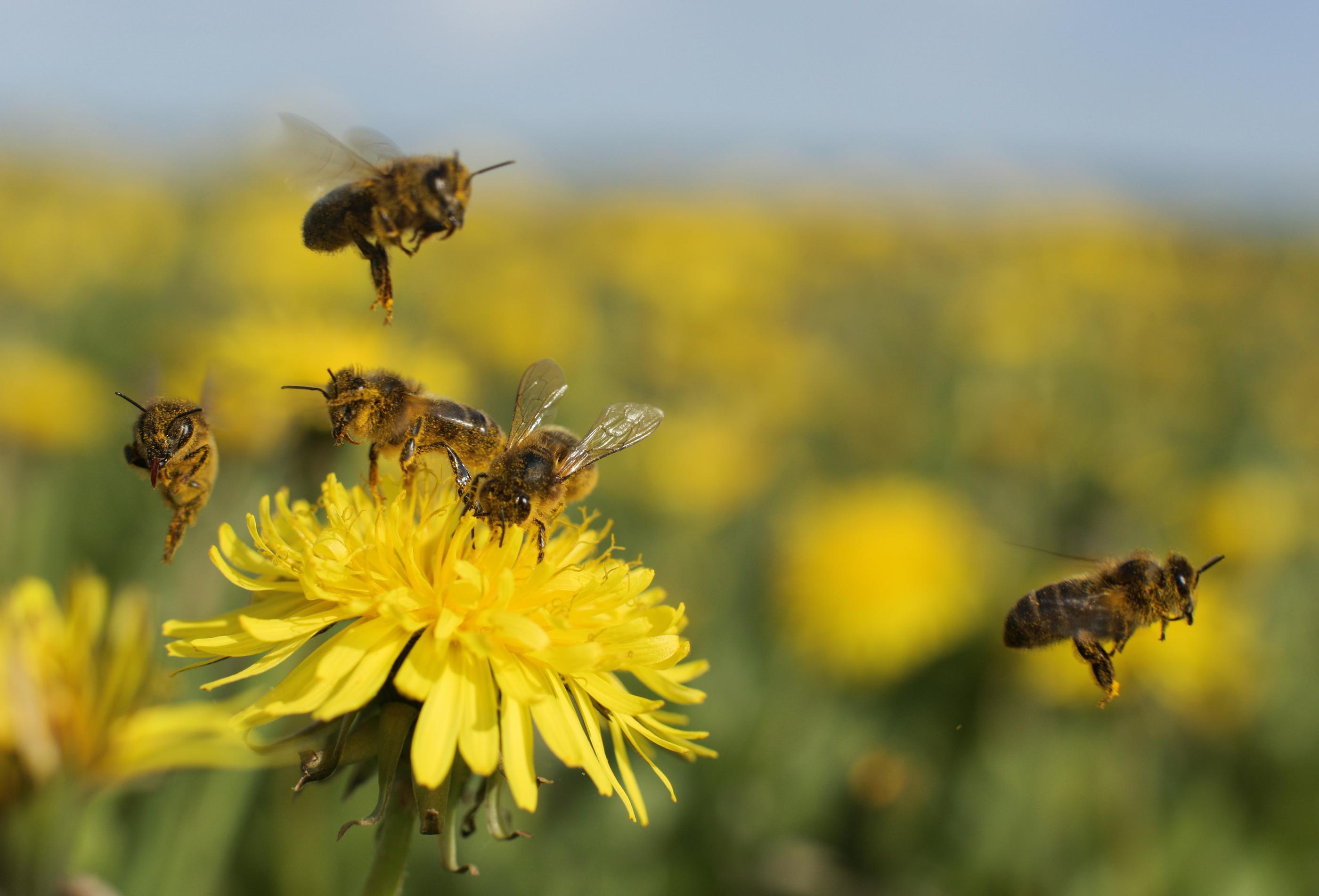Tips for Protecting Bees in Your Garden
Posted by Mosquito Squad
August 14, 2024

Author: Emma Grace Crumbley, Entomologist
Bees help keep our planet beautiful! To keep these beneficial bugs buzzing around your backyard, check out these tips to protect the bees in your garden:
Create Foraging Areas
Bees need to forage for flowering plants to collect pollen for their colonies. Adding native, flowering plants to your lawn provides bees with food. Plus, flowers give your garden more vibrancy! It’s also important for bees to gather pollen from various flowering plants, so the more diverse you make your lawn, the better! Lavender, cosmos, aster, and goldenrod are vibrant plants that bees love.
Learn about your region’s native wildflowers here!
Be Mindful of Nesting Sites
Attracting foraging bees is important, but allowing bees to nest nearby supports future generations of pollinators! Consider adding bee boxes to your lawn to give nearby bees some shelter and a potential colony site. Bee boxes can be small and decorative like birdhouses, another excellent way to add some spark to your outdoor space.
Want to make your own bee hotel? Check out our tutorial here!
Consider Cover Crops
Bees, like most arthropods, are susceptible to drying out and dying if they stay in the sun too long. Creating shady areas around your yard can help bees rest during the hottest parts of the day. Cover crops like clover, canola, and sunflowers can create these shady spots while providing bees with flowers to feed on.
What’s better than plants bees love? Plants bees love… that mosquitoes hate. Read more here!
Choose Mosquito Squad
Mosquito Squad puts pollinators first with our environmentally conscious approach to pest control. Mosquito Squad’s environmental commitment promises to protect pollinators during every treatment. Our technicians are highly trained to avoid foraging areas, identify native pollinators, and work with local beekeepers to preserve and promote bees of all kinds.
Call the Squad today to manage your pest problems while protecting your pollinators!
